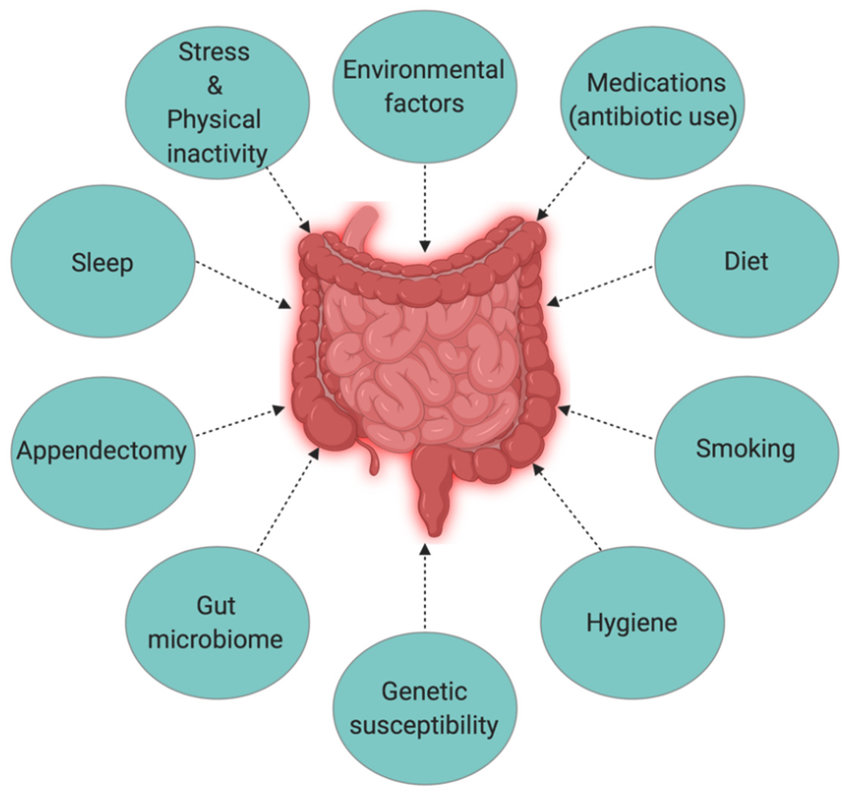More than 25% of Americans suffer from a gastrointestinal disease such as irritable bowel disease and/or inflammatory bowel diseases. Study Shows 1 in 5 Americans walk around with debilitating a gastrointestinal issues that goes undiagnosed. Women in particular are most impacted by a gastrointestinal disease again such as IBS or IBD. There are many symptoms that accompany gastrointestinal diseases. Cramping, nausea, rectal bleeding, abdominal swelling, chronic diarrhea, and weight loss. Some underlying causes of gastrointestinal diseases are treatable by conventional medications while others are very contingent on diet and external remedies.
One main underlying gastrointestinal disease is Crohn’s disease. It is unknown the true cause of Crohn’s disease, however many believe that environment, genetics, and diet are believed to be the cause in most cases. Whatever the cause the result is a chronic inflammatory disorder which focuses the body’s defense systems on its own healthy systems. More specifically it targets the body’s own gastrointestinal tract. Almost half of the overall risk is focused on seventy genes found related to genetics. Smokers are targeted specifically hard with this disease. Tobacco uses are more than twice as likely to be diagnosed with Crohn’s disease as nonsmokers.
As of 2020 there are no specific medications or surgeries that can arrest the spread of Crohn’s disease. Treatment options are designed to help mitigate the symptoms and assist in alleviating pain and suffering experienced by the patient. Patients with these disorders frequently report using cannabis therapeutically to address a variety of symptoms, including abdominal pain, abdominal cramping, and diarrhea. Observational trial data reports that whole-plant cannabis therapy is associated with a reduction in Crohn’s disease activity and disease-related hospitalizations.
Colitis is another gastrointestinal disease that falls under the label inflammatory bowel disorder. Colitis describes the inflammation of the colon. It can be acute and self limited or it can be long term. Many of the symptoms of colitis are similar to what is found in a Crohn’s patient. Abdominal pain, cramping, diarrhea, swelling and rectal bleeding are all commonly found in colitis patients as well. Cannabis has been found to be beneficial to those suffering from colitis as well. Cannabis use is common amongst patients with IBD for symptom relief, particularly amongst those with a history of abdominal surgery, chronic abdominal pain and/or a low quality of life index.
Specifically, researchers found that patients whom consumed medical marijuana improved their need for other medications. Participants in the trial also reported requiring fewer surgeries following their use of cannabis. Based on the available evidence to date, some experts now opine that modulation of the ECS represents a novel therapeutic approach for the treatment of numerous GI disorders to include inflammatory bowel disease, irritable bowel disease, functional bowel diseases, GERD, secretory diarrhea, gastric ulcers and cancer.
If you have IBS, IBD, Crohn’s, GERD, or any other gastrointestinal disease, learn how getting a medical marijuana card in North Carolina could help improve your health conditions. For more information on how to get qualified for a medical marijuana card in North Carolina, visit our North Carolina medical marijuana doctors sitemap or contact our offices.

